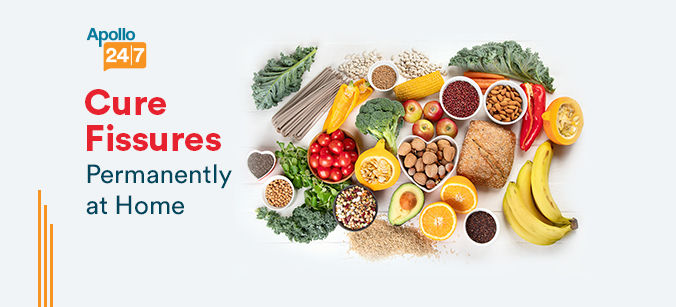General Health
Can Supplements Help Treat Vitamin C Deficiency?
7 min read
By Apollo 24|7, Published on - 27 September 2023
Share this article
0
0 like

Vitamin C, often lauded for its role in supporting the immune system and overall health, is a vital nutrient that our bodies require for various functions. However, despite its importance, many individuals around the world still struggle with vitamin C deficiency, which can lead to a range of health issues. Vitamin C deficiency occurs when there is an insufficient intake or absorption of this essential nutrient. In this article, we will delve into the depths of Vitamin C deficiency, its impacts, and how the use of Vitamin C tablets can provide a revitalising solution for improved health and vitality.
What is Vitamin C Deficiency?
Vitamin C, also known as ascorbic acid, is an antioxidant that helps protect the body against harmful free radicals. It is involved in the production of collagen, a protein that helps heal wounds and maintain healthy skin, bones, and blood vessels.
Additionally, Vitamin C boosts the immune system, aids in iron absorption, and contributes to the formation of neurotransmitters.
Causes and Risk Factors of Vitamin C Deficiency
Vitamin C deficiency, also known as scurvy, can arise due to various causes and risk factors. Here are the primary factors that contribute to vitamin C deficiency:
1. Inadequate Dietary Intake of Vitamin C
Some factors that contribute to inadequate dietary intake are:
- Poor Diet: Not consuming enough fruits and vegetables, which are rich sources of Vitamin C.
- Unbalanced Diet: Relying heavily on processed and packaged foods, which often lack essential vitamins and minerals.
- Limited Access to Fresh Produce: This can be a challenge for individuals living in remote areas or those with financial constraints.
2. Medical Conditions that can lead to Deficiency
Certain medical conditions interfere with the absorption of Vitamin C such:
- Malabsorption disorders: Certain gastrointestinal conditions like Crohn's disease or celiac disease can interfere with the absorption of nutrients, including Vitamin C.
- Alcoholism: Excessive alcohol consumption can impair the body's ability to absorb and utilise Vitamin C.
- Kidney disease: Impaired kidney function can affect the excretion of Vitamin C, leading to deficiency.
3. Lifestyle Factors Increasing the Risk
Some lifestyle factors that may increase the risk of Vitamin C deficiency are:
- Smoking: Tobacco smoke contains harmful chemicals that deplete Vitamin C levels in the body.
- Stress: Chronic stress can increase the body's demand for Vitamin C, depleting its stores.
- Environmental pollution: Exposure to pollutants and toxins can increase oxidative stress in the body, requiring higher levels of antioxidants like Vitamin C.
Symptoms of Vitamin C Deficiency
Vitamin C plays a vital role in maintaining overall health and preventing various complications. A deficiency in this essential nutrient can result in several symptoms and potential complications.
1. Early Signs and Symptoms
Some of the early signs and symptoms include:
- Fatigue and Weakness: Feeling tired even after adequate rest.
- Joint and Muscle Pain: Experiencing discomfort and soreness in joints and muscles.
- Dry and Splitting Hair: Brittle, lifeless hair that breaks easily.
- Dry, Rough Skin: Skin that feels rough to the touch and lacks moisture.
- Swollen and Bleeding Gums: Gum inflammation, tenderness, and bleeding during brushing or flossing.
2. Progression of Deficiency and Potential Complications
Some factors that can lead to the progression of the deficiency, and raise complications are:
- Scurvy: Severe vitamin C deficiency can lead to scurvy, a condition characterised by fatigue, swollen joints, gum disease, anaemia, and even mood changes.
- Delayed Wound Healing: Slower healing of wounds due to impaired collagen production.
- Weakened Immune System: Reduced ability to fight off infections and illnesses.
- Anaemia: Lack of vitamin C can lead to iron deficiency anaemia due to poor absorption of iron from plant-based sources.
How to Treat Vitamin C Deficiency?
Vitamin C deficiency can have serious health consequences if left untreated, therefore measures must be taken to treat and prevent it.
1. Importance of Dietary Changes
When it comes to treating Vitamin C deficiency, one of the most important steps is making dietary changes and increasing your intake of Vitamin C-rich foods. Fruits and vegetables are excellent sources of Vitamin C. Some Indian options you can consider include:
- Amla (Indian gooseberry): Amla is known for its high Vitamin C content and can be consumed fresh or in the form of juice or pickles.
- Guava: This tropical fruit is not only delicious but also packed with Vitamin C.
- Oranges: Oranges are a popular choice for boosting your Vitamin C levels.
- Kiwi: This exotic fruit is not only rich in Vitamin C but also provides other important nutrients.
Additionally, you can steam or blanch vegetables instead of boiling them. Cook fruits and vegetables at low temperatures and avoid excessive heat exposure.
2. Role of Vitamin C Supplements
Vitamin C tablets and capsules are the most common forms of supplementation. Vitamin C tablets are easy to consume and provide a convenient way to meet your daily vitamin C needs.
Capsules, on the other hand, may be preferred by individuals who have difficulty swallowing tablets or want a different form.
Recommended Dosage of Vitamin C Supplementation
The recommended dosage of Vitamin C tablets may vary depending on individual needs and the severity of the deficiency. Generally, a daily intake of 75-90 mg is sufficient for most individuals.
The duration of vitamin C supplementation also varies based on individual needs. For general health maintenance, a daily supplement is often recommended. However, for specific conditions or deficiencies, a healthcare professional may suggest a higher dosage or a limited duration of supplementation. It's important to follow their guidance to ensure optimal results.
Potential Side Effects of Vitamin C Supplements
Vitamin C supplements are generally considered safe when taken within the recommended daily dosage. However, excessive intake of vitamin C supplements can lead to various side effects.
1. Possible Adverse Reactions
In some cases, high doses of Vitamin C supplements can cause digestive issues such as diarrhoea, nausea, and stomach cramps. It is recommended to start with a lower dose and gradually increase it to avoid these side effects. If you experience any unusual symptoms after taking vitamin C tablets, it is important to seek medical attention.
Taking extremely high doses of vitamin C for prolonged periods can lead to vitamin C overdose or toxicity, which may result in symptoms such as:
- Diarrhoea
- Nausea
- Stomach cramps
- Kidney stones
2. Interactions with Other Medications
Vitamin C tablets can interact with certain medications such as blood thinners and chemotherapy drugs. It is important to consult with your healthcare provider before starting any new supplement to avoid any potential interactions or unwanted effects.
3. Recommended Guidelines for Safe Supplementation
To ensure safe supplementation, here are some recommended guidelines:
- Follow the recommended dosage provided on the packaging or as advised by your healthcare professional.
- Choose reputable brands to ensure the quality and potency of the supplement.
- Store the tablets in a cool and dry place to maintain their effectiveness.
- If you have any underlying medical conditions or are pregnant or breastfeeding, consult your healthcare provider before starting Vitamin C supplementation.
Lifestyle Modifications to Combat Vitamin C Deficiency
Maintaining optimal levels of Vitamin C is essential for overall health and well-being. Here are some strategies to prevent Vitamin C deficiency:
- Avoid excessive alcohol consumption, as it can interfere with the absorption and utilisation of Vitamin C.
- Quit smoking, as smoking increases the body's demand for Vitamin C.
- Store fruits and vegetables properly to preserve their Vitamin C content. Opt for fresh produce whenever possible.
Conclusion
In conclusion, addressing and treating Vitamin C deficiency is of utmost importance for maintaining optimal health. Vitamin C plays a crucial role in various bodily functions and its deficiency can lead to numerous health problems. By ensuring an adequate intake of Vitamin C through Vitamin C tablets, you can boost your immunity, protect against chronic diseases, promote wound healing, and support overall well-being. Taking proactive steps towards addressing Vitamin C deficiency can significantly improve your health and quality of life.
To know if you have vitamin C deficiency,
General Health
Leave Comment
Recommended for you

General Health
10 High-Dietary Fiber Foods For A Healthy Lifestyle
Discover 10 high dietary fiber foods to enhance your healthy lifestyle. Improve digestion and overall well-being with these nutritious choices.

General Health
7 Signs Of Flu You Must Know About
Stay informed about the flu with our comprehensive guide. Learn about the latest guidelines, new technologies, and lifestyle factors that can help you prevent and manage flu symptoms.

General Health
Home Remedies To Cure Anal Fissures Permanently
Anal fissures are a common problem that occurs due to constipation and passing of hard stools. However, the concern is how long do fissures take to heal? And can anal fissures heal on their own?
Subscribe
Sign up for our free Health Library Daily Newsletter
Get doctor-approved health tips, news, and more.
Visual Stories

Plant-based Foods That Are a Great Source of Iron
Tap to continue exploring
Recommended for you

General Health
10 High-Dietary Fiber Foods For A Healthy Lifestyle
Discover 10 high dietary fiber foods to enhance your healthy lifestyle. Improve digestion and overall well-being with these nutritious choices.

General Health
7 Signs Of Flu You Must Know About
Stay informed about the flu with our comprehensive guide. Learn about the latest guidelines, new technologies, and lifestyle factors that can help you prevent and manage flu symptoms.

General Health
Home Remedies To Cure Anal Fissures Permanently
Anal fissures are a common problem that occurs due to constipation and passing of hard stools. However, the concern is how long do fissures take to heal? And can anal fissures heal on their own?